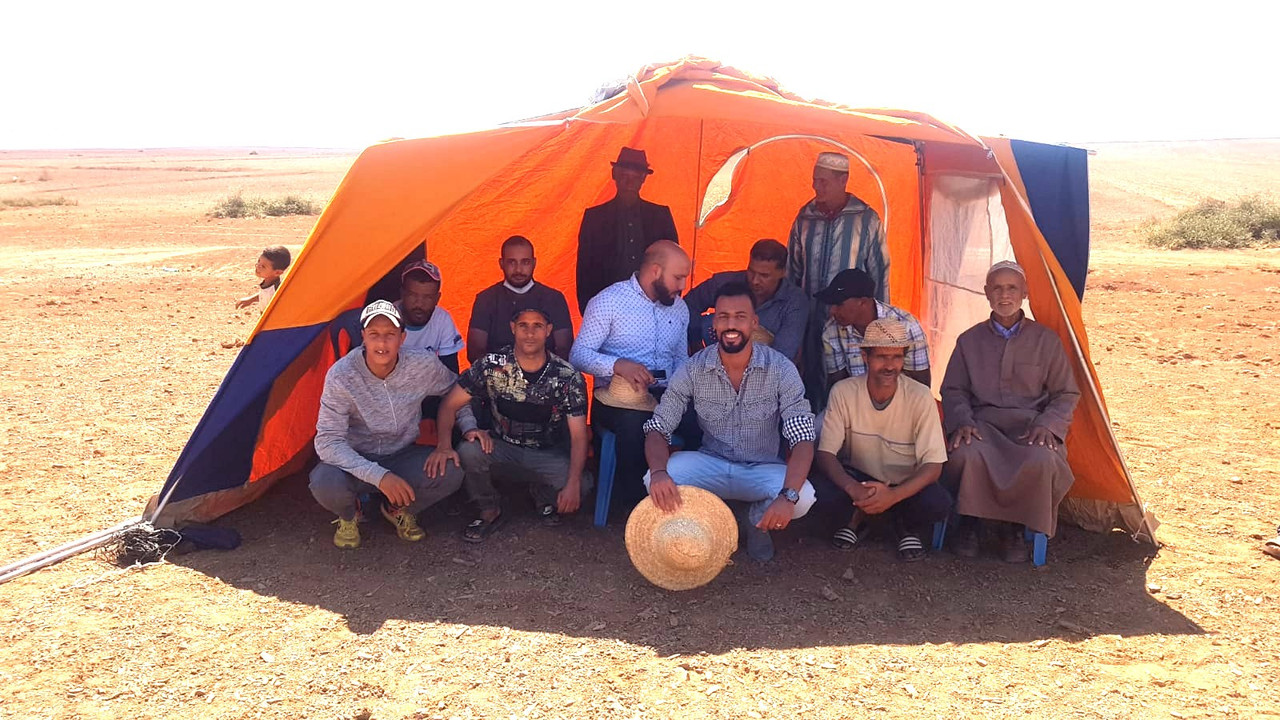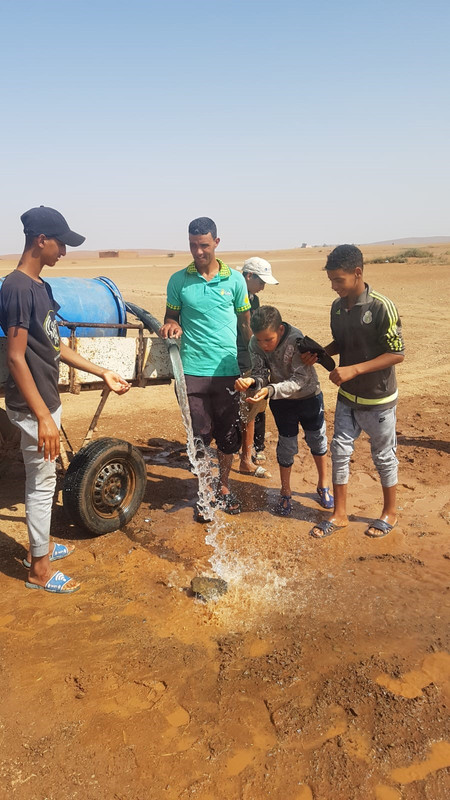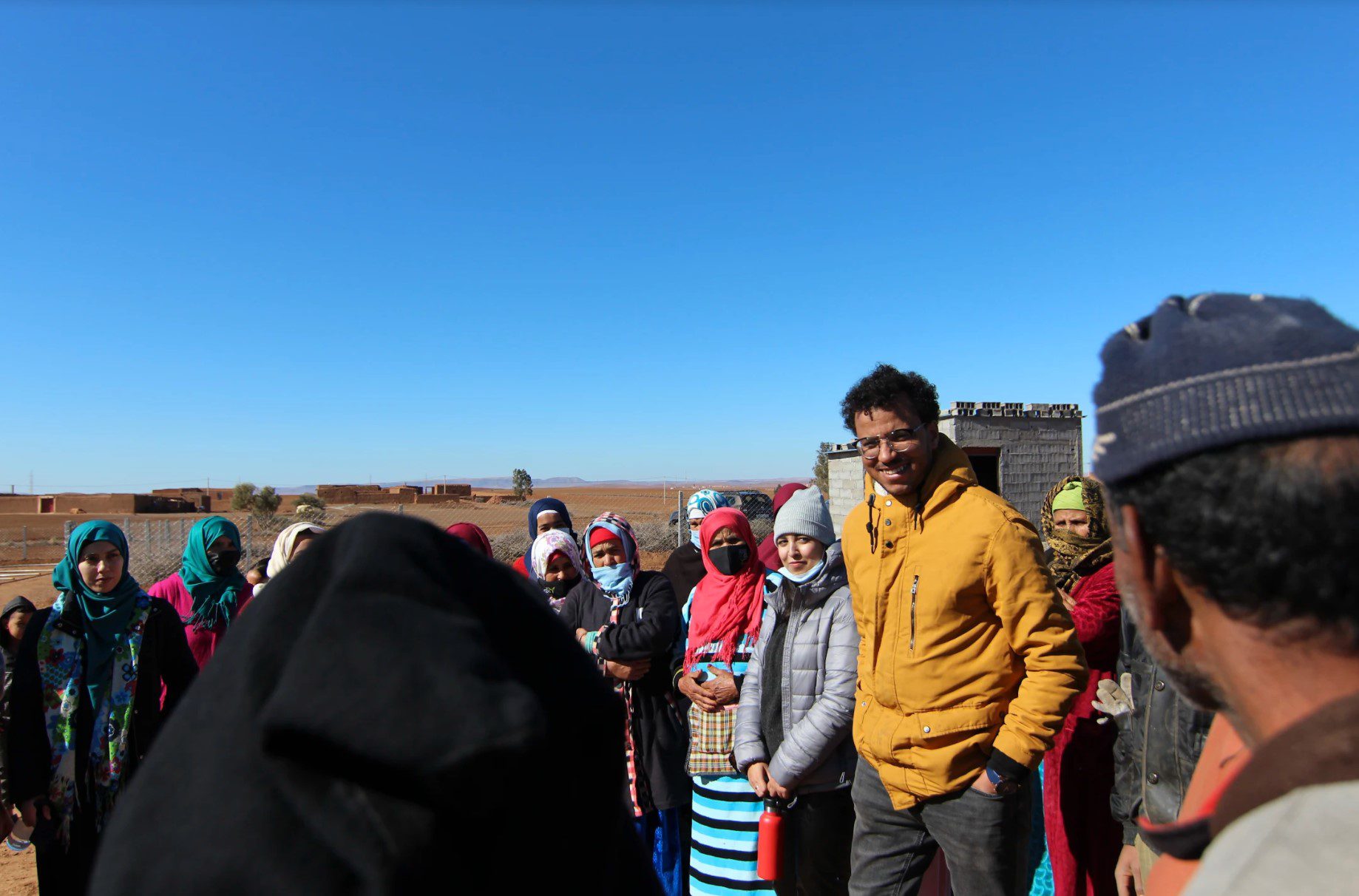By Mustapha Tarhbaloute, HAF Field Monitor

Renewable energy in Morocco is like a newborn, in the relatively early stages of development. It has become more popular in the last two decades as a step to overcome the huge expense of electricity as well as a way to decrease greenhouse gas emissions.
Thanks to the High Atlas Foundation and Germanwatch, the renewable energy project has made a difference in the El Youssoufia Province (in Douar Lkdirate in the Chamaia community). This province is known as the richest part of the Marrakech-Safi region, but unfortunately some areas still have limited earnings coupled with a shortage of underground water from which the community can profit. They depend on the limited agriculture there, so these types of projects are well received by the people of the village with open hearts and hands; they know that this is a new beginning to enhance the agricultural prospects and improve economic opportunities and livelihoods.
The project includes plenty of benefits for the community by supporting tree planting. The community needed this opportunity to be realized, and so they have contributed their lands to it, created a nursery with various types of plants, and connected the village with drinking water. A first well has been dug in the village, but seeing as the water is insufficient for the project and that the area suffers from ongoing water shortages, the team is considering digging a second well to cover the shortage and help the project succeed.
At the same time, the HAF team used the participatory approach with the women in the Douar, by creating a cooperative and scheduling technical training by experts. Through these actions, they will contribute to the project’s progress and improve living conditions, improving income generation.
The village will have solar panels installed to pump water from both wells for irrigating the nursery plants and also for clean drinking water, with 15-20 tons of storage. Every house will have a counter installed for regular management and to save water as much as possible. At the same time, water will be treated for bacteria and salt. Laboratories specializing in water treatment have been consulted and specialists will make periodic visits to monitor the quality of the water to be used for drinking and irrigation.

Using renewable energy will provide a well-organized irrigation system for the planting season and also play a big role in the community, especially with women who will take care of the nursery, and serve as an example of what could be done in the future.






